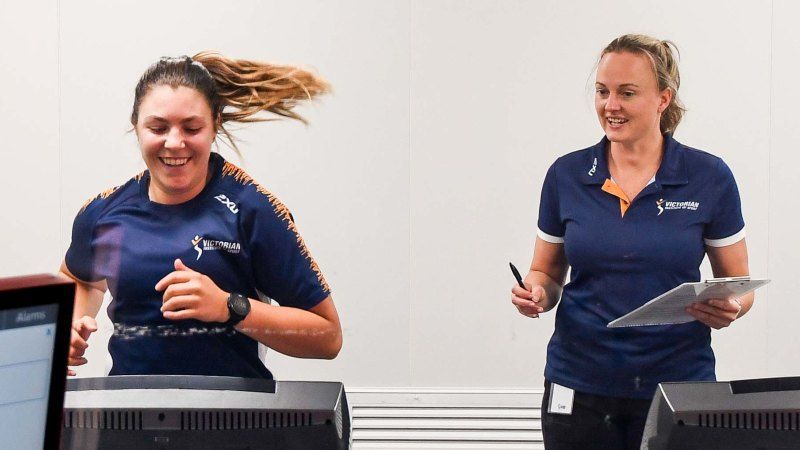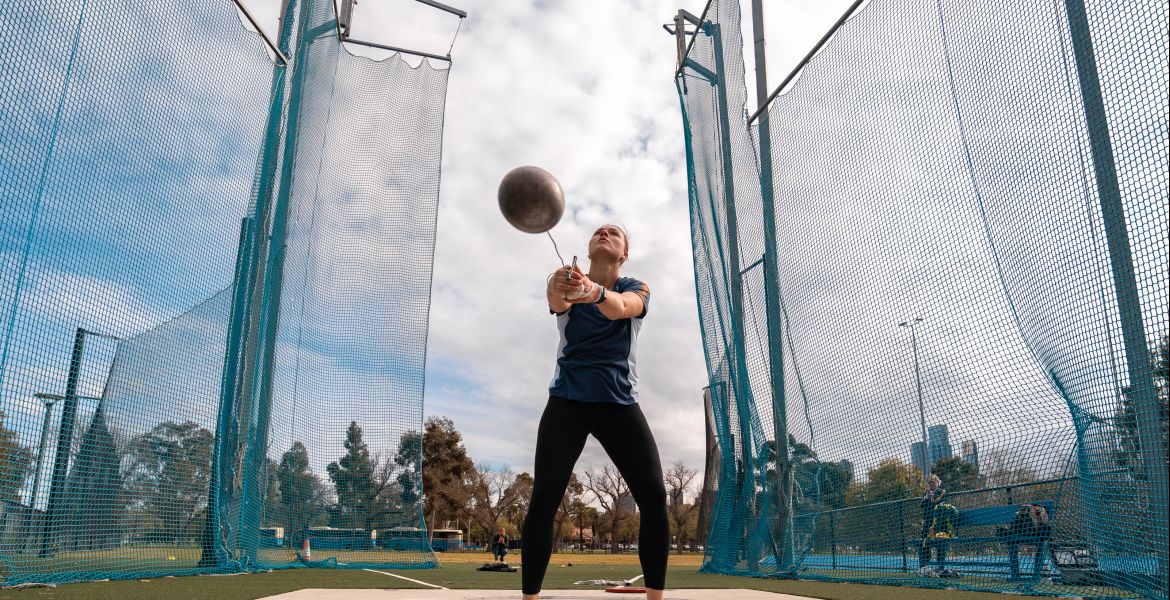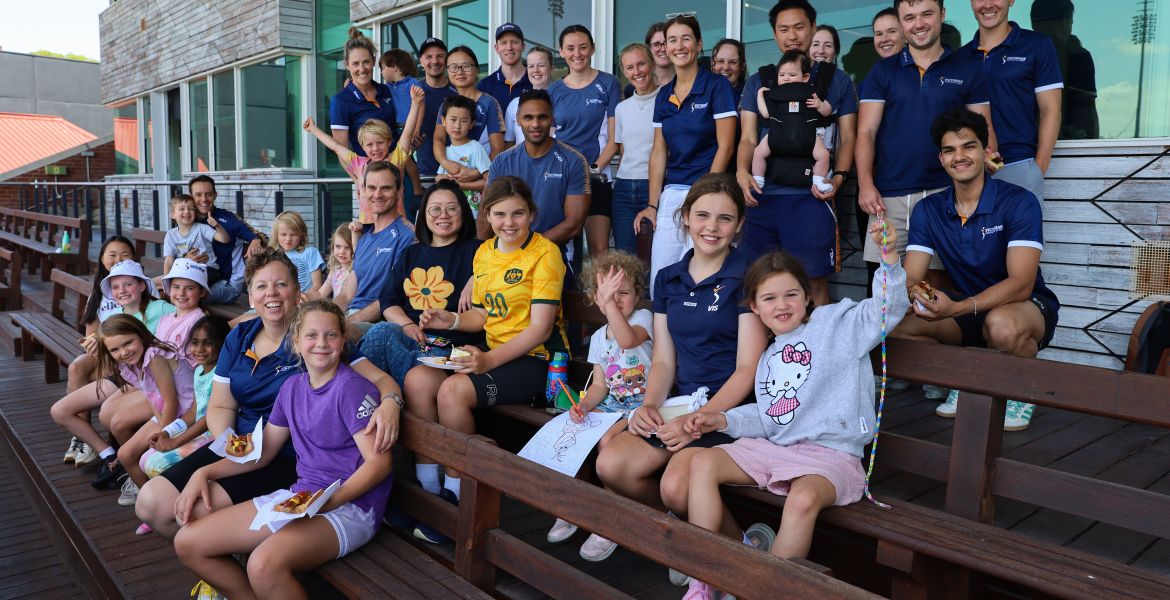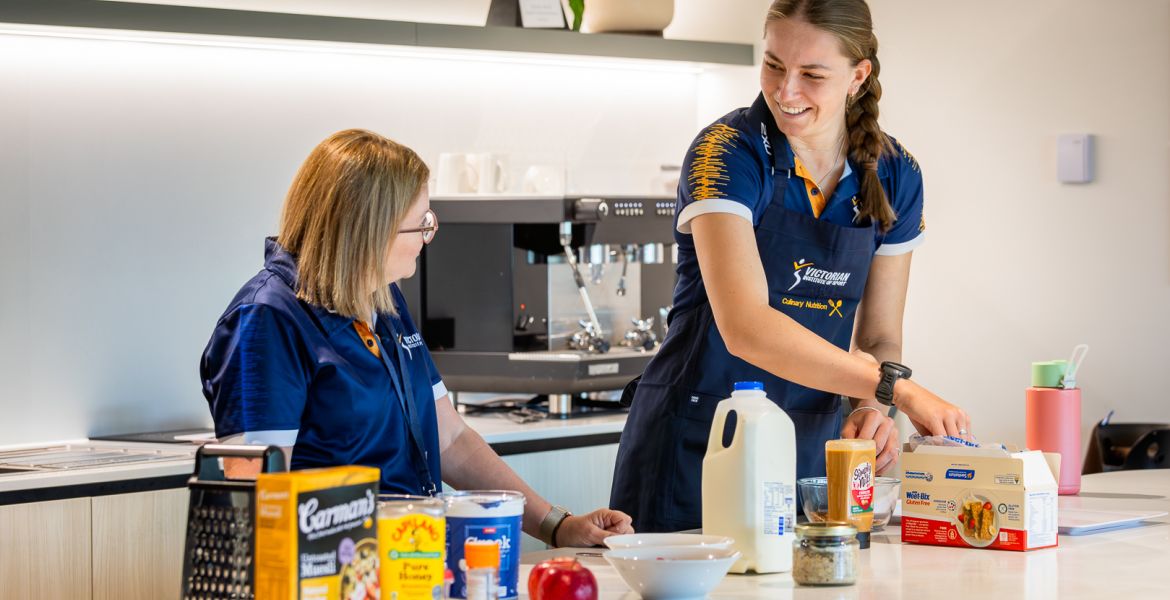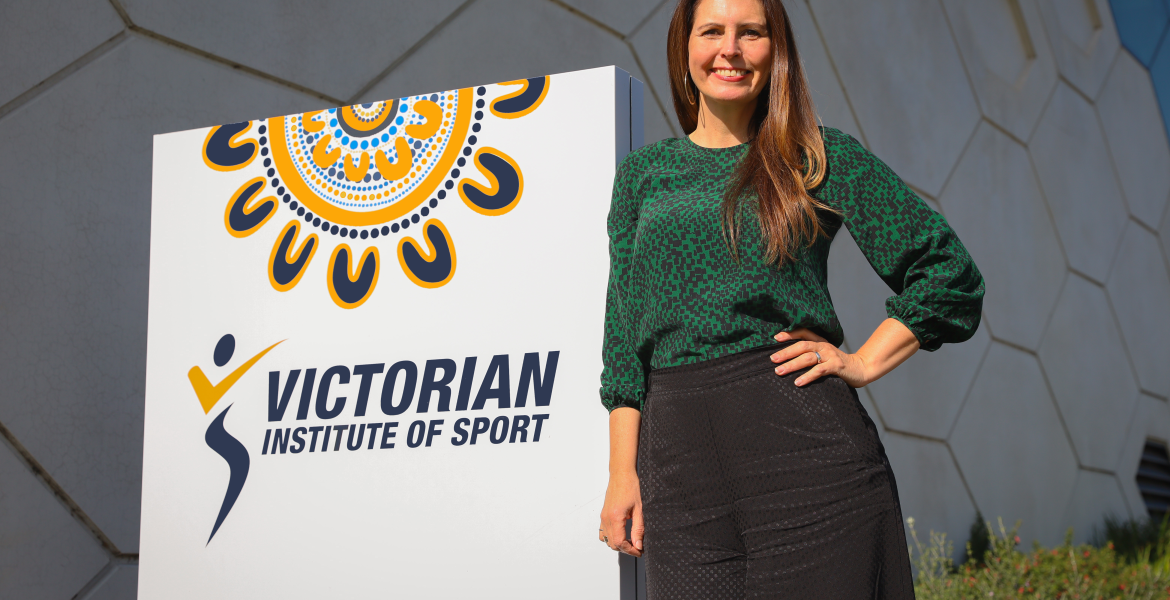VIS lead sport scientist, Sylvie Withers, whose parents were Olympic rowers, was training to qualify for the Australian Rowing Team before she realised that she wouldn’t make it to the Olympics. It was then that she decided to help others achieve their Olympics aspirations.
Her sport science career started with a 12-month work placement at the VIS in 2007. The traineeship led to a part-time job and over time, her position developed into a full-time role.
Sylvie has worked with a number of Olympic and Paralympic athletes across a range of different sports during her 14 years at the VIS. She loves the challenges that different sports present and then problem solving to find solutions and interventions that enable our athletes to excel.
Most recently she has been helping athletes prepare for the Tokyo Olympics in the sports of sailing, diving and sport climbing. Sylvie talks to Pinnacle about how she helped them prepare for the Games, and how she felt watching them from afar:
I for one, love a good challenge, but the phrase ‘be careful what you wish for’ has never resonated so clearly. Athlete preparation is rarely without a few spanners thrown into the works: injury, illness, equipment failures, even changes to competition scheduling. Enter: Global Pandemic. The preparation for Tokyo was more akin to putting together an IKEA flatpack without instructions or that flimsy (but crucial) Allen key, whilst also blindfolded. If I never hear the word ‘pivot’ again it will still be too soon!
Despite the change of date, cancelled international events, altered selection procedures, border closures, lockdowns and restrictions, we put our creative caps on and adapted to the ever-changing situation. What’s more, the challenges presented gave us a focus and purpose in a time of such uncertainty. I had close friends and family members lose their jobs, single parents struggling to juggle home schooling with running their business from home. In a time of such fear and doubt, I have never been more grateful for the privilege to work in high performance sport.
When the opening ceremony aired it was as though I could finally release that breath, I didn’t even realise I was holding. The tributes to our frontline workers lodged a golf ball-sized lump in my throat. That lump then spent the next two weeks circulating between bouncing around my guts in nervous energy, occasionally stopping my ability to breathe, eyes bulging out at the suspense, and back to the throat to trigger the waterworks. Sitting wasn’t an option. I was either hovering over the seat or jumping up and down on the spot. *Apologies to my neighbours for all the yelling and screaming.
Celebrating the Aussie green and gold is innate. The cheers, understandably, get a great deal louder for those familiar faces from the VIS. But there is nothing quite like the guttural sounds that emerge when cheering on an athlete you work with directly, dredged up by the deep personal knowledge of the journey it took to get there. And that’s only half the ride! Next comes the result-driven mystery box of emotions. From pure elation when they achieve what they set out to do – which may or may not involve a medal. To the heartbreak when a goal proves too far out of reach. But with disappointment comes opportunity, and so the process to critique and improve begins.
Without a doubt, the most dominant emotion was that of immense pride in not only the athletes, but in playing my part within the team and the greater Olympic movement.

